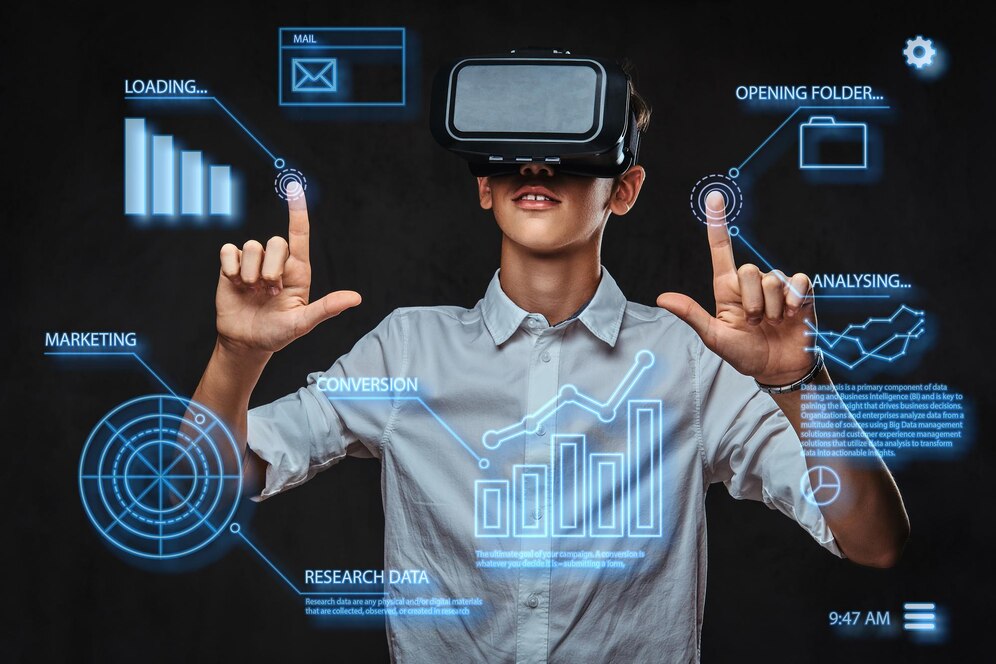In a world that is constantly evolving, staying updated with technological advancements is more important than ever. The pace at which technology is advancing is staggering, and these innovations are shaping the future in ways we could have never imagined. From artificial intelligence to renewable energy technologies, let’s dive into some of the latest technological innovations that are set to transform our lives.
The Impact of Artificial Intelligence (AI)
Artificial Intelligence, or AI, refers to the simulation of human intelligence in machines. These intelligent systems can perform tasks that typically require human intelligence, such as recognizing speech, making decisions, and translating languages. AI has found applications in various industries, from healthcare, where it aids in diagnosing diseases, to finance, where it helps in fraud detection. The future prospects of AI are incredibly promising, with advancements such as machine learning and neural networks paving the way for more sophisticated and efficient AI systems.
The Rise of 5G Technology
5G technology is the fifth generation of mobile network technology, offering faster speeds, lower latency, and greater capacity than its predecessors. This leap in technology will enable more reliable and instantaneous connections. Potential applications of 5G are vast, including enhanced mobile broadband, massive IoT connectivity, and ultra-reliable low latency communications that could revolutionize industries like healthcare, transportation, and entertainment.
Blockchain and Cryptocurrencies
Blockchain technology, the backbone of cryptocurrencies, is a decentralized ledger that records transactions across many computers. This ensures the security and transparency of data. Cryptocurrencies, such as Bitcoin and Ethereum, have risen in popularity due to their decentralized nature and potential for high returns. Beyond cryptocurrencies, blockchain has real-world applications in supply chain management, voting systems, and securing personal data.
Advancements in Quantum Computing
Quantum computing leverages the principles of quantum mechanics to process information in ways that classical computers cannot. While classical computers use bits as the smallest unit of data, quantum computers use qubits, which can represent and store data in multiple states simultaneously. This allows quantum computers to solve complex problems much faster than classical computers. Potential impacts of quantum computing include breakthroughs in cryptography, material science, and complex system modeling.
The Internet of Things (IoT)
The Internet of Things (IoT) refers to the interconnectedness of everyday devices via the internet, enabling them to send and receive data. This connectivity transforms daily life by creating smart homes, cities, and industries. Imagine your refrigerator automatically ordering groceries when you run low or streetlights adjusting their brightness based on the time of day. Future developments in IoT are expected to further integrate technology into our daily routines, making life more efficient and convenient.
Advancements in Renewable Energy Technologies
Renewable energy is crucial for a sustainable future, and recent advancements in this field are promising. Innovations in solar and wind energy technologies have made them more efficient and cost-effective. For instance, solar panels are becoming more efficient at converting sunlight into electricity, and wind turbines are being designed to capture more energy at lower costs. The future prospects of renewable energy technologies include further advancements in energy storage solutions and the development of smart grids.
The Future of Autonomous Vehicles
Autonomous vehicles, or self-driving cars, use a combination of sensors, cameras, and AI to navigate without human intervention. Currently, companies like Tesla and Waymo are at the forefront of this technology. While there are challenges such as regulatory hurdles and safety concerns, the benefits, including reduced traffic accidents and increased mobility for those unable to drive, are significant. Future developments in autonomous transportation may see fully autonomous cars becoming mainstream, transforming the way we commute.
Virtual and Augmented Reality
Virtual Reality (VR) and Augmented Reality (AR) are technologies that alter our perception of the world. VR creates a completely immersive digital environment, while AR overlays digital information onto the real world. These technologies have applications in gaming, education, healthcare, and more. The future potential of VR and AR includes more immersive experiences, improved hardware, and broader adoption across different sectors.
Advancements in Medical Technology
Medical technology has seen remarkable advancements in recent years. Innovations such as telemedicine, wearable health monitors, and robotic surgery are revolutionizing healthcare. These technologies improve patient outcomes, reduce healthcare costs, and make medical care more accessible. Future trends in medical technology include personalized medicine, advanced diagnostic tools, and the integration of AI in medical research and treatment.
Nanotechnology: The Tiny Giant
Nanotechnology involves manipulating matter at the atomic or molecular level. This tiny technology has vast applications in medicine, electronics, and materials science. For example, nanotechnology is being used to create targeted drug delivery systems that improve the efficacy of treatments while reducing side effects. The future potential of nanotechnology is immense, with possibilities including advanced manufacturing processes and new materials with extraordinary properties.
Robotics and Automation
Robotics and automation are transforming industries by increasing efficiency and reducing the need for manual labor. Current trends in robotics include advancements in AI, making robots more intelligent and adaptable. Applications of automation span from manufacturing to service industries, where robots perform tasks such as assembly line work, cleaning, and customer service. The future of robotics and automation points towards more sophisticated robots that can perform a wider range of tasks with higher precision.
Space Exploration and Technology
Space technology has seen significant advancements, driven by both government agencies and private companies like SpaceX and Blue Origin. Recent developments include reusable rockets, more sophisticated satellites, and plans for manned missions to Mars. The future prospects of space technology are exciting, with potential advancements in space travel, exploration of other planets, and the development of space-based industries.
Biotechnology Innovations
Biotechnology involves using living organisms or their systems to develop or make products. Recent advancements in genetic engineering, such as CRISPR, have made it possible to edit genes with high precision. These innovations hold promise for curing genetic diseases, improving crop yields, and creating biofuels. The future potential of biotechnology is vast, with possibilities including personalized medicine, sustainable agriculture, and new bioproducts.
Conclusion
Technological innovations are reshaping our world at an unprecedented pace. From AI and 5G to renewable energy and biotechnology, these advancements promise to improve our lives and solve some of the most pressing challenges. Embracing these technologies is essential for staying ahead in a rapidly changing world. The future is bright, and staying informed and adaptable will be key to leveraging these innovations for a better tomorrow.
Trance 100% Waterproof Premium Cotton Feel Mattress Protector King Size, 78x72 Inches | Breathable and Hypoallergenic Ultra Soft Fitted Bed Protector Cover (78"x72" Fits Upto 10 Inches - King, Grey
₹669.00 (as of 26 December, 2024 11:24 GMT +05:30 - More infoProduct prices and availability are accurate as of the date/time indicated and are subject to change. Any price and availability information displayed on [relevant Amazon Site(s), as applicable] at the time of purchase will apply to the purchase of this product.)ALOXE Cosmetic Organizer Box Drawers Storage Plastic Stationary Box | Make Up Organiser For Women
₹198.00 (as of 26 December, 2024 11:24 GMT +05:30 - More infoProduct prices and availability are accurate as of the date/time indicated and are subject to change. Any price and availability information displayed on [relevant Amazon Site(s), as applicable] at the time of purchase will apply to the purchase of this product.)BESTHOT Immersion Water |1500 Watt Electric Immersion Rod, Instant Heating With Bucket Holde Long Wire Hot Water Color (Black)
₹298.00 (as of 26 December, 2024 11:25 GMT +05:30 - More infoProduct prices and availability are accurate as of the date/time indicated and are subject to change. Any price and availability information displayed on [relevant Amazon Site(s), as applicable] at the time of purchase will apply to the purchase of this product.)Milton Thermosteel Flip Lid Flask, 1000 milliliters, Silver
₹964.00 (as of 26 December, 2024 11:24 GMT +05:30 - More infoProduct prices and availability are accurate as of the date/time indicated and are subject to change. Any price and availability information displayed on [relevant Amazon Site(s), as applicable] at the time of purchase will apply to the purchase of this product.)nutripro Copper Juicer Mixer Grinder - Smoothie Maker - 500 Watts (3 Jars, Silver) - 2 Year Warranty
₹1,799.00 (as of 26 December, 2024 11:24 GMT +05:30 - More infoProduct prices and availability are accurate as of the date/time indicated and are subject to change. Any price and availability information displayed on [relevant Amazon Site(s), as applicable] at the time of purchase will apply to the purchase of this product.)Discover more from The General Post
Subscribe to get the latest posts sent to your email.





